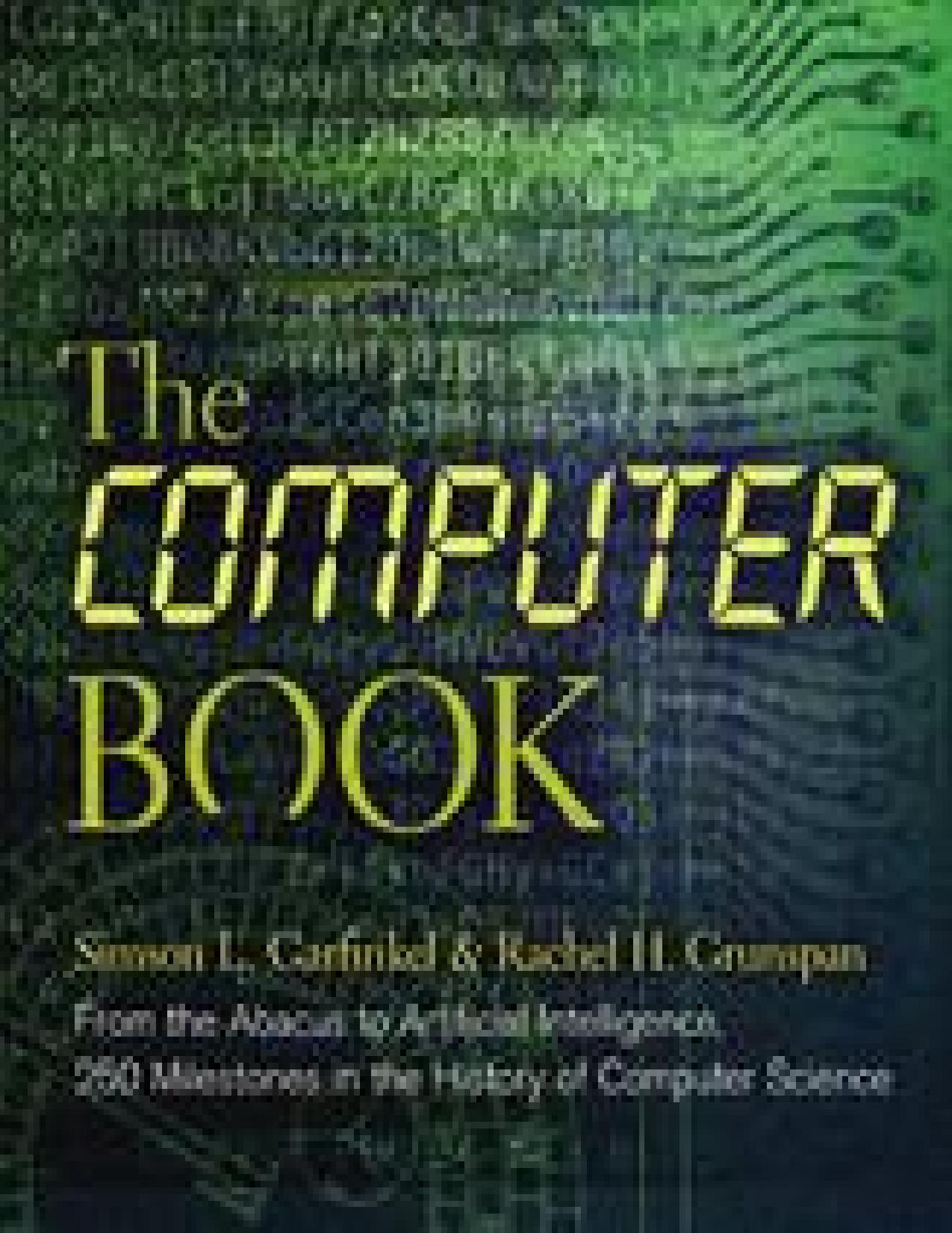The Computer Book: From the Abacus to Artificial Intelligence, 250 Milestones in the History of Computer Science by Simson L. Garfinkel & Rachel H. Grunspan

Author:Simson L. Garfinkel & Rachel H. Grunspan
Language: eng
Format: epub, pdf
Cover of the July 1982 issue of BYTE, the first personal computing magazine.
1975
Homebrew Computer Club
Fred Moore (1941–1997), Gordon French (dates unavailable)
Like the early American explorer Davy Crockett, “King of the Wild Frontier,” the members of the legendary Homebrew Computer Club were trailblazers who helped initiate and lead the PC revolution. The club, whose theme was “Give to help others,” was a place for like-minded enthusiasts to find each other and swap knowledge, demonstrate work, trade information about software and hardware design, share schematics and experiences, learn about computing publications, access parts through bulk equipment purchase, make build-it-yourself computing more accessible, and—most of all—push the envelope of what a homebrew computer could do.
The momentum behind the group’s existence was fueled, in part, by the Altair 8800 kit, which hit the market around the same time the club was formed. As the first successful PC kit, the Altair was the missing link that opened a world of experimentation and innovation to individuals on a scale that had not previously existed.
The club’s first meeting occurred in Menlo Park, California, in March 1975 in the garage of cofounders Gordon French and Fred Moore. As the club grew, meetings were moved to the Stanford Linear Accelerator Center in Menlo Park. Members included a parade of notable technologists, including Steve Wozniak and Steve Jobs, who gave away schematics of the Apple I computer at the club, as well as infamous phone phreaker John Draper (a.k.a. “Captain Crunch”), who possessed the useful skill of making free long-distance telephone calls.
Many of Homebrew’s members were hardware junkies who had not given much consideration to the software side of what their inventions could do. “Software is a lot more difficult to build than hardware,” noted Gordon French in the second issue of the Homebrew Computer Club’s newsletter.
The Homebrew Computer Club brought together a community of enthusiastic talent whose pure curiosity, excitement, and sense of exploration about technology for technology’s sake profoundly influenced what would grow to be ground zero of the PC industry.
SEE ALSO First Personal Computer (1974), BYTE Magazine (1975), Apple II (1977), Microsoft and the Clones (1982)
Download
The Computer Book: From the Abacus to Artificial Intelligence, 250 Milestones in the History of Computer Science by Simson L. Garfinkel & Rachel H. Grunspan.pdf
This site does not store any files on its server. We only index and link to content provided by other sites. Please contact the content providers to delete copyright contents if any and email us, we'll remove relevant links or contents immediately.
The Mikado Method by Ola Ellnestam Daniel Brolund(22913)
Hello! Python by Anthony Briggs(22086)
Secrets of the JavaScript Ninja by John Resig Bear Bibeault(20737)
Kotlin in Action by Dmitry Jemerov(19790)
The Well-Grounded Java Developer by Benjamin J. Evans Martijn Verburg(19760)
OCA Java SE 8 Programmer I Certification Guide by Mala Gupta(19098)
Algorithms of the Intelligent Web by Haralambos Marmanis;Dmitry Babenko(17895)
Grails in Action by Glen Smith Peter Ledbrook(17039)
Sass and Compass in Action by Wynn Netherland Nathan Weizenbaum Chris Eppstein Brandon Mathis(14505)
Test-Driven iOS Development with Swift 4 by Dominik Hauser(11049)
Windows APT Warfare by Sheng-Hao Ma(7852)
Layered Design for Ruby on Rails Applications by Vladimir Dementyev(7562)
Blueprints Visual Scripting for Unreal Engine 5 - Third Edition by Marcos Romero & Brenden Sewell(7473)
Solidity Programming Essentials by Ritesh Modi(4586)
Functional Programming in JavaScript by Mantyla Dan(4533)
Hands-On Full-Stack Web Development with GraphQL and React by Sebastian Grebe(4448)
WordPress Plugin Development Cookbook by Yannick Lefebvre(4413)
Unity 3D Game Development by Anthony Davis & Travis Baptiste & Russell Craig & Ryan Stunkel(4282)
The Ultimate iOS Interview Playbook by Avi Tsadok(4270)
